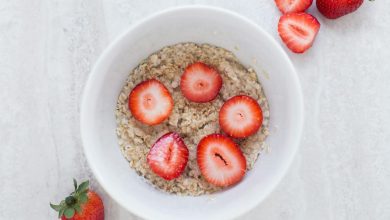The Role of Supplements in Fitness

Supplements have become a major part of the fitness world. From protein powders to pre-workouts to multivitamins, they line the shelves of gyms and health stores everywhere. But what role do they actually play in helping you get fitter, stronger, or leaner? Are they essential, or just nice-to-haves?
Support, Not Substitutes
The key to understanding supplements is realizing they’re meant to supplement your diet—not replace it. Whole foods should always be the foundation of your nutrition. No powder or pill can do what a balanced diet of real food does. But when used correctly, supplements can help fill in the gaps, boost performance, and support recovery.
Protein for Muscle Repair
One of the most common supplements is protein powder, often derived from whey, casein, or plant-based sources like pea or rice. It’s popular because it makes it easy to hit your daily protein goals, especially if you’re strength training or trying to build muscle. After a workout, your muscles need protein to repair and grow. A shake can deliver that fast and conveniently, especially when you don’t have time for a full meal.
Creatine for Power and Strength
Creatine is one of the most researched and proven supplements on the market. It helps your muscles produce energy during high-intensity workouts like lifting or sprinting. Taking creatine regularly has been shown to increase strength, boost performance, and help with muscle growth. It’s simple, effective, and relatively inexpensive.
Pre-Workouts for Energy and Focus
Pre-workout supplements usually contain a mix of caffeine, amino acids, and other ingredients designed to increase energy, improve focus, and enhance endurance. They can give you a mental and physical boost before training, especially on days when motivation is low. However, not all pre-workouts are created equal. Some are loaded with stimulants or unproven ingredients, so it’s important to check labels and know what you’re taking.
Recovery and Joint Support
Supplements like BCAAs (branched-chain amino acids), glutamine, or omega-3s can support muscle recovery and reduce soreness, especially for those training intensely. Joint support formulas with ingredients like turmeric, collagen, or glucosamine are also common among people who do high-impact workouts or are managing inflammation.
Vitamins and Minerals
A well-rounded diet should provide most of the vitamins and minerals your body needs. But if you’re on a restrictive diet, training heavily, or dealing with stress, you might need more support. Multivitamins, vitamin D, magnesium, and iron are some of the common supplements people turn to when they’re deficient or trying to optimize performance.
Conclusion
Supplements can play a helpful role in fitness when used wisely. They’re not magic, and they don’t replace a solid diet and consistent training, but they can help you recover faster, perform better, and meet your nutritional needs more easily. Think of them as tools—not crutches. When used with purpose and knowledge, they can give your fitness journey an extra edge.



